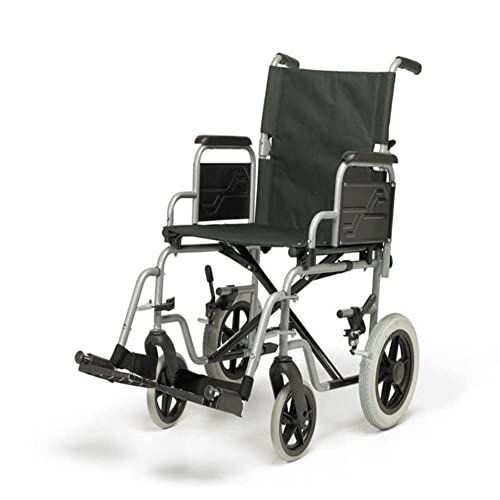The Main Issue With Mobility Scooter, And How You Can Repair It
Understanding Mobility Scooters: A Comprehensive Guide
Mobility scooters have ended up being an important tool for individuals who face mobility difficulties, providing independence and a means of transportation. They are created to assist users in browsing different surfaces, whether inside your home or outdoors, allowing them to engage more completely in everyday activities. This short article will explore the types of mobility scooters, their features, benefits, and factors to consider for prospective users.
What is a Mobility Scooter?
A mobility scooter is a motorized car made for people with physical restrictions. It helps users preserve their mobility and independence, providing an efficient methods of transportation over short ranges. While they might look similar to small electric automobiles, mobility scooters are usually powered by batteries, with controls developed for ease of usage.
Types of Mobility Scooters
There are numerous types of mobility scooters available in the market, each designed to cater to different requirements and preferences. Here's a breakdown of the most common types:
Type of Mobility Scooter
Description
Best For
Three-Wheeled Scooters
These scooters offer exceptional maneuverability and small turning radius but may do not have stability.
Indoor usage and tight spaces.
Four-Wheeled Scooters
Often more steady than three-wheeled models, these scooters are best for outdoor usage.
All-terrain travel and outside activities.
Portable Scooters
Lightweight and foldable, these scooters are developed for easy transport.
Travelers and individuals with restricted storage area.
Heavy-Duty Scooters
Developed for larger users, these are robust and can manage much heavier weights, frequently equipped with better battery life.
Users needing additional support and stability.
Feature-Rich Scooters
These may consist of innovative innovation such as Bluetooth connectivity, integrated GPS, and adjustable seating.
Tech-savvy users searching for comfort and benefit.
Key Features of Mobility Scooters
When selecting a mobility scooter, purchasers need to consider a number of vital functions. The following list details important elements that can significantly affect their experience:
- Weight Capacity: Understanding the scooter's weight limit is essential to make sure safety and efficiency.
- Battery Life: A longer battery life equates to more extended usage between charges, which is essential for prolonged journeys.
- Speed: Typical mobility scooters can reach speeds between 4 to 8 miles per hour, however it's important to select one that matches the user's needs.
- Convenience: Look for adjustable seats, armrests, and back-rests that boost the general riding experience.
- Mobility: If traveling often, a lightweight and collapsible scooter is advantageous.
- Terrain Capability: Some scooters are much better equipped for rough terrains, while others work best on smooth surface areas.
Advantages of Using Mobility Scooters
Mobility scooters offer numerous benefits that can substantially enhance users' quality of life. These include:
Increased Independence
Lots of individuals who battle with mobility depend on household or caregivers for transportation. Mobility scooters empower users to move about freely and carry out errands on their own, promoting a sense of self-reliance and self-sufficiency.
Improved Quality of Life
Having the ability to take a trip unassisted can result in social engagement, improved psychological wellness, and in general much better quality of life. Users can take part in social activities, see family and friends, and explore their communities.
Cost-Effectiveness
Compared to other mobility help or services, mobility scooters can be more affordable. They can remove the requirement for costly modifications to homes or reliance on transportation services.
Adjustability and Customization
Many mobility scooters include choices for customization, making sure that users can tailor them to best fulfill their specific needs.
Considerations Before Purchase
Before selecting the ideal mobility scooter, possible purchasers ought to keep these considerations in mind:
- Lifestyle Needs: Assess how the scooter will suit everyday routines, including the frequency and places of usage.
- Trial Rides: If possible, taking a couple of models for a test drive can assist evaluate convenience and maneuverability.
- Spending plan: Costs can differ widely, so defining a budget plan upfront is vital.
- Guarantee and Service: Always consider the warranty provided and the schedule of customer care in case of repairs.
FAQs About Mobility Scooters
1. How quickly do mobility scooters go?
Mobility scooters generally range from 4 to 8 miles per hour, depending on the model and its power capacity.
2. Are mobility scooters covered by insurance coverage?
Lots of insurance coverage strategies may cover part of the expense if a doctor prescribes the scooter; nevertheless, policies differ significantly.
3. Can I drive a mobility scooter on the road?
This depends upon local laws and guidelines. In some areas, mobility scooters may be permitted on public roads, while in others, they are restricted to sidewalks and pathways.
4. For how long does the battery last?
Battery life normally depends on the scooter design and kind of usage. Normal mobility scooter batteries can last anywhere from 6 to 12 miles on a single charge.
5. Are mobility scooters safe?
Mobility scooters are usually safe when utilized properly. It's important to familiarize oneself with the controls and operate them properly.
Mobility scooters play an essential role in the lives of individuals with mobility difficulties. By comprehending the types, functions, advantages, and considerations related to these lorries, users can make educated choices. This can lead to increased independence, a better quality of life, and renewed access to the world around them. Whether for social getaways, errands, or leisure activities, a mobility scooter can be a life-altering investment for numerous people.
